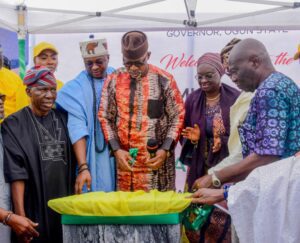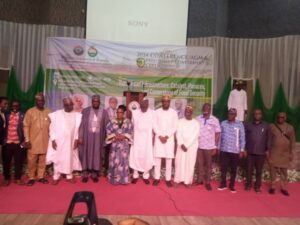
Tinubu encouraged me to construct a refinery — Dangote
…As refinery kicks production, await regulatory approval for commercial rollout
President of Dangote Group, Aliko Dangote has revealed that President Bola Ahmed Tinubu encouraged him to embark on the construction of a refinery project.
The Dangote Refinery commenced production of refined petroleum products on Friday, January 11, 2023.
Expressing gratitude to the President for his vision and support, Dangote thanked President Tinubu, the federal government, its agencies, and all Nigerians for believing in him and supporting the mega project despite all odds.
The renowned entrepreneur recalled the support, encouragement, and thoughtful advice he got from President Tinubu towards the actualisation of the refinery project.
President Tinubu, while addressing Nigerians on New Year Day had alluded to the fact that the federal government and indeed Nigerians were eagerly awaiting the start of production at Dangote and Port Harcourt refineries to ease the attendant hardship on citizens after the fuel subsidy removal.
Specifically, Dangote also thanked the Nigerian National Petroleum Company Limited (NNPC Limited), the Nigerian Upstream Petroleum Regulatory Commission (NUPRC), and the Nigerian Midstream and Downstream Petroleum Regulatory Authority (NMDPRA) for their support and belief in the historic project.
According to Dangote, “I want to thank President Bola Tinubu for his support and for making our dream come true. This production, as witnessed today, would not have been possible without his visionary leadership and prompt attention to details. His intervention at various stages cleared all impediments thereby accelerating the actualisation of the project.
“I also want to express my appreciation to the Nigerian National Petroleum Company Limited, the Nigerian Upstream Petroleum Regulatory Commission, and the Nigerian Midstream and Downstream Petroleum Regulatory Authority for their support. These organisations have been our dependable partners in this historic journey. We also thank Nigerians for their belief and support in this project. We have started the production of diesel and aviation fuel, and the products will be in the market within this month once we receive regulatory approvals.
“This is a big day for Nigeria. We are delighted to have reached this significant milestone. This is an important achievement for our country as it demonstrates our ability to develop and deliver large capital projects. This is a game changer for our country, and I am very fulfilled with the actualisation of this project,” he added.
The refinery has so far received six million barrels of crude oil at its two SPMs located 25 kilometres from the shore. The first crude delivery was done on December 12, 2023, and the 6th cargo was delivered on January 8, 2024.
The Refinery can load 2,900 trucks a day at its truck-loading gantries. The products from the Refinery will conform to Euro V specifications. The refinery design complies with the World Bank, US EPA, European emission norms, and Department of Petroleum Resources (DPR) emission/effluent norms. Employing state-of-the-art technology.
“I must extend our sincere appreciation to our Bankers and financiers, both local and offshore, who demonstrated a great deal of patience, in seeing us through many difficult times. In the same vein, we thank the Government of Lagos State, under the leadership of Babajide Sanwo-Olu, who has been incredibly proactive in ensuring that the many challenges we encountered in the course of executing this project were quickly resolved. I thank him immensely,” Dangote stated.
“I also sincerely thank our host communities and their Traditional leaders for their sustained patience, forbearance, and admirable willingness to work with us to find amicable and win-win resolutions to the many issues we have had to deal with as the construction of this huge facility progressed. Our staff have also contributed so immensely to the success of this project. I thank them profusely,” he added.



